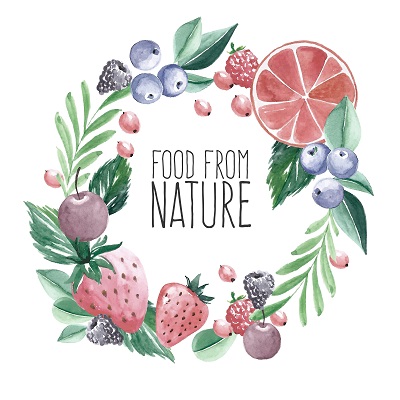 I think the last time I heard the word “roughage” was when my grandmother ordered me to eat salad first before eating meat and potatoes and then to eat fruit after. Fruits and vegetables are “roughage.”
I think the last time I heard the word “roughage” was when my grandmother ordered me to eat salad first before eating meat and potatoes and then to eat fruit after. Fruits and vegetables are “roughage.”
These are foods that are rich in Fiber which then acts to fill up your stomach and aid efficient digestion and absorption of vitamins and minerals from the food we eat.
These also act as scouring pads to remove the build-up and deposit of digested food on the lining of our intestines especially the colon.
If you can snack on these foods the whole day instead of eating sweets and chips, not only will you get superior nutrition, you will also ensure that your digestive track is swept clean.
High Fiber Whole Foods
Fruits
- Raspberries
- Pear with skin
- Apple with skin
- Banana
- Orange
- Strawberries
- Dried Figs
- Raisins
Vegetables
- Artichoke
- Green peas
- Broccoli
- Turnip greens
- Brussels sprouts
- Sweet corn
- Potato with skin
- Tomato paste
- Raw Carrots
Grains
- Barley
- Bran flakes
- Popcorn air-popped
- Brown rice
- Steel cut oats
- Bran from corn
- Quinoa
- Whole grain bread
Nuts/Seeds and Beans
- Split peas
- Lentils
- Black beans
- Lima beans
- Sunflower seeds
- Almonds
- Pistachios
- Pecans
When we don’t drink enough water and don’t eat enough roughage, we usually end up constipated or, we usually feel bloated, and we may even suffer from flatulence (we burp and pass gas a lot).
This happens because roughage and fiber help us move our bowels regularly. When we do not move our bowels regularly to excrete solid waste from our digestive track, the pulp clogs up the pipes.
The longer they stay there, the more bacteria builds up to break down the food bits. Bacterial activity in our intestines produce methane. When methane builds up, we feel bloated. The bacterial activity from waste matter that is not eliminated regularly also cause halitosis (bad breath). It is even suspected of raising the risk for stomach infections. It is then, in your best interest to eat a lot of roughage.
One word of caution: if you have been diagnosed with ulcers or with gastritis, eating roughage might not be good for you as roughage might irritate the stomach lining. It is best to consult your physician before making radical changes to your diet.
Who can benefit from increased intake of fiber-rich food?
People who are trying to lose weight stand to benefit from eating high-fiber food. The Fiber fills up the stomach making you feel fuller and leaving little space for favorite foods, which may be cholesterol, sugar and salt-laden.
Diabetics will also benefit from a high-fiber diet. Eating food rich in Fiber will cut down the consumption of food, which are rich in simple sugars.
Fiber-rich food may also contain carbohydrates which, when processed by the body in the digestive track will be turned into sugar anyway. But, fiber-rich food is usually also a good source of complex carbohydrates.
Complex carbohydrates are a bit more complicated for the body to digest. Thus, the body will process complex carbohydrates more slowly, and, the good news is, the body will have to expend energy to process the complex carbohydrates (you burn up energy trying to process complex carbohydrates).
More importantly, when you consume high-fiber foods that are complex carbohydrates, you satisfy your craving for sweetness without raising your intake of refined sugars. Refined sugars are what you get from cookies, cake, ice cream and other baked goods.
High-fiber fruits, such as peaches, oranges, avocados, papayas, apples, pears and kiwis are also a rich source of Vitamin C, Vitamin A and other trace minerals such as potassium.
You get three times the benefit: the carbohydrates from these fruits are complex, you get more nutrients, and you also help keep your digestive track healthy and clean.






